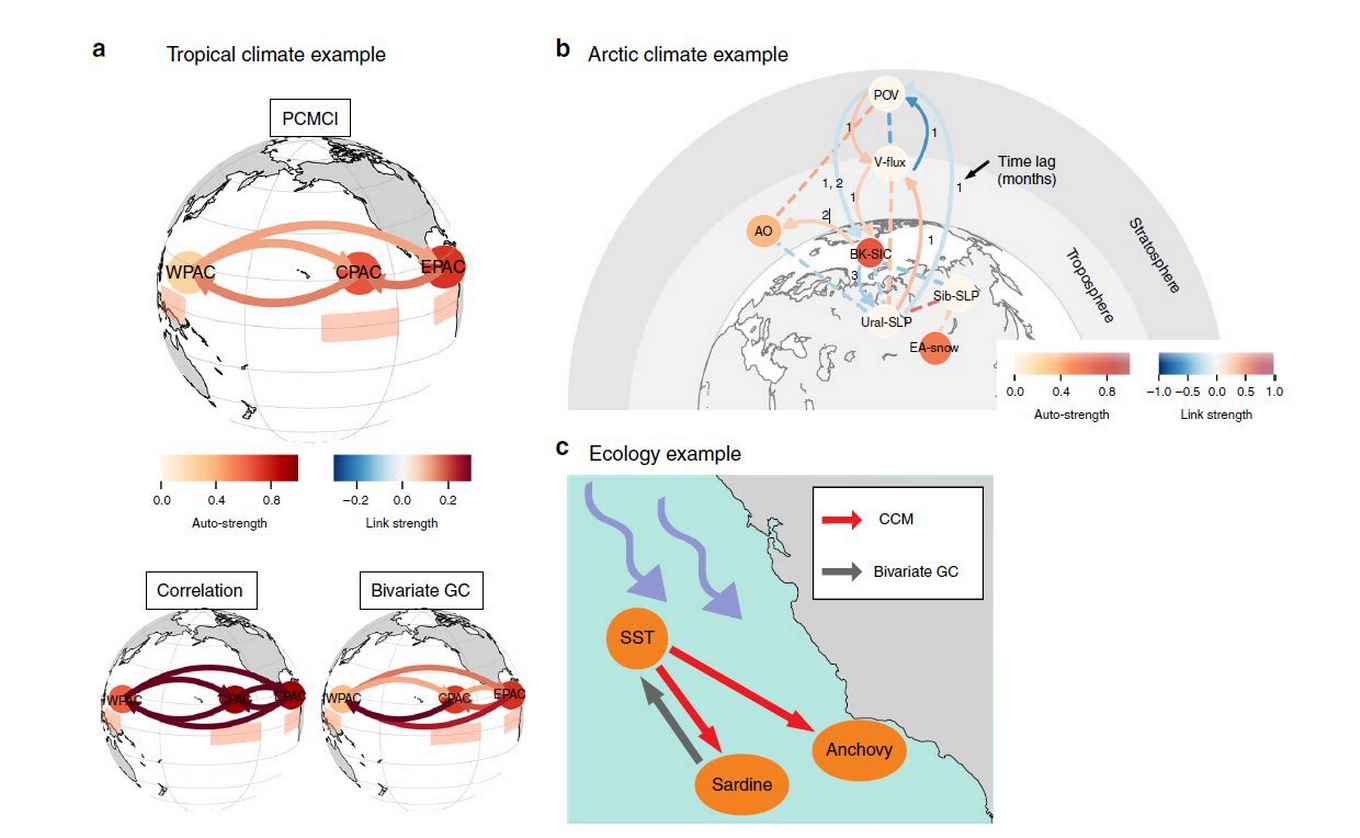Inferring causal relationships from climate data requires advanced statistical techniques
8 July 2019

The climate is a complex system, which comprises a large number of ongoing processes on different temporal and spatial scales, all of them also affecting each other. While mapping these different processes and their mutual causal relationships is extremely difficult, it is also crucial if effective computer models are to be created. These computer models can then make reliable predictions of any changes and of our future climate on earth, in accordance with the IPCC’s objectives.
However, the complexity of these processes is not the only reason why identifying causal relationships in climate science is so difficult. Another problem is that the climate data that we have collected so far only cover a fraction of the earth's lifespan. In addition, the climate is constantly changing. Reverting the earth to a specific initial state and then observing what happens is impossible. Unlike common practice in many other sciences, you cannot intervene experimentally in the processes involved to assess the impact either. The earth and the scale on which the processes occur are too grand to use that approach.
Advanced techniques
For these reasons, developing advanced statistical methods which can be applied specifically to climate data is imperative, say the team of experts in Nature Communications. In their vision article, Dr Rick Quax and his colleagues list the conditions which these techniques must meet. They also mention a number of existing techniques that meet the conditions in part. First and foremost, though, their article is designed to prompt the development of even better techniques and to give an initial overview of the nature of these new techniques.
Broad consortium
Such a complex problem calls for an interdisciplinary approach. This reason is why the consortium involved is so broad, ranging from climate scientists and physicists to statisticians and computational scientists. They met for the first time at the ‘Causality in Complex Systems’ workshop, which was organised in June 2017 by Professor Marten Scheffer and coordinated by dr. Jakob Runge. Here, the problems came to the fore and the idea of developing an interdisciplinary approach was born.
‘Our field is full of different climate models and no prospect of experimental validation. The idea of the meeting was to see whether causal inference techniques could be applied to the various scenarios in the field’, says Quax, who made a contribution as co-author of the article from the perspective of information theory and non-equilibrium inference.
He continues: ‘The energy was so positive and the problem so urgent that we decided to work on it further. Among the main purposes of this article is to raise the profile of the problem, both within climate science itself and beyond, as well as to invite other researchers in order to help us find solutions.’
Publication details
Runge, Jakob, et al. "Inferring causation from time series in Earth system sciences." Nature Communications 10.1 (2019): 2553. Link: https://www.nature.com/articles/s41467-019-10105-3